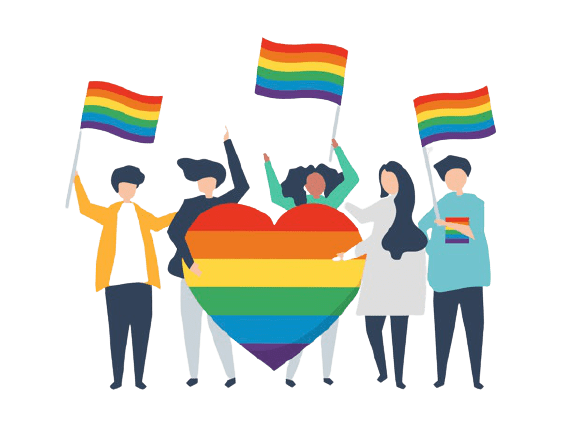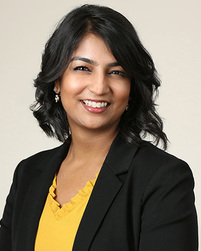Online Lesbian Counseling | Best Therapist For Lesbian Counseling
- Setup a free & confidential chat on your sexuality.
- Unlimited help through our self-care app.
- Live Video or Chat sessions with top Lesbian Counselors.
Begin Therapy
Consult online with best Therapist
Get The Best Help For Sexuality Issues
TherapyMantra is here to help you on your path to recovery from Lesbianism. We match you with the best Lesbian Counselors available 24/7 via video call or messaging.
Match with Top Lesbian Counselors
We assign the best counsellors experienced in sexuality issues based on your needs.
Affordable and Effective
Our online sessions are 90% less expensive than in-person therapy, available 24/7.
Self-Care
We offer ongoing support through self-care tools, depression help videos, chat groups, meditations, breathing exercises, and other resources.

Wondering if it’s just a phase or something more? Take our Free online Lesbian Counseling to find out?
How Does It Work?
You are matched with a Lesbian Counselor based on your needs and preferences. You get a secure “therapy room” where you can communicate with your counsellor via chat or phone. You can write or talk about your issues & ask questions to deal with Lesbianism.

Register for Lesbian Counseling
Simply complete a 5-minute online form to tell us about your sexality issues

Consult with your Lesbian Counselors
We connect you with Lesbian Counselors who are available 24/7 based on your preferences and needs.

Connect to Our App
Apart from Video / chat sessions, our app offers self-care tools, videos and meditations to help you deal with your sexual issues.
Best Lesbian Counselors
Positive conversations, exercises, and meditations are used by TherapyMantra psychologists to help you deal with depression. Our Lesbian Counselors outperform traditional counselling as you get matched from a pool of 500+ Lesbian Counselors, who offer 24/7 unrestricted private chat.








Who Is Lesbian?
People who identify as lesbians are romantically and sexually attracted to people of the same gender. They may be women who are attracted to other women, but there are also men who identify as lesbians.
There is no one definition of what it means to be a lesbian, as people’s attractions and orientations can vary greatly. However, there are some common characteristics that are often associated with being a lesbian. These may include having strong feelings of attraction to people of the same gender, feeling like you do not fit into traditional gender roles, and enjoying activities and lifestyles that are typically associated with women.
Types Of Lesbians
There are a few types of lesbians, which we will discuss in this section.
- Lipstick lesbian: This is a woman who is feminine in appearance and typically wears makeup and dresses in women’s clothing. Lipstick lesbians are often attracted to other women who are similarly feminine.
- Butch lesbian: This term describes a woman who has qualities that are culturally associated with masculinity. Butches may be masculine in appearance, dress in traditionally masculine clothing, and behave in ways that are typically associated with men. Most butch lesbians identify as women; however, they do not necessarily follow traditional gender roles or stereotypes.
- Femme lesbian: This term describes a woman who is traditionally feminine in appearance and behavior. Femmes typically wear makeup and dresses and may be attracted to other femmes or to butches.
- Queer or genderqueer: which means that they do not identify with traditional gender roles or categories.
- Androgynous: meaning that they have qualities that are both masculine and feminine. There are also women who do not fit into any of these categories, and each woman’s identity is unique.
Symptoms Of Lesbianism
Symptoms of lesbianism can vary from person to person. However, some of the most common symptoms of lesbianism include:
- Feeling sexually and emotionally drawn to people of the same gender
- Wanting to date and be in relationships with other women
- Experiencing a strong sense of identification with other lesbians
- Feel like you were born to be a lesbian
- Exhibiting feelings of sexual attraction towards women
- Drifting away from typical heterosexual activities, interests, relationships, and conversations
Reasons For Lesbianism
There is no one answer to this question as there is no one cause for lesbianism. Instead, it is likely that there is a range of causes, each unique to the individual. Some possible causes of lesbianism may include:
- A lack of male attention during childhood or adolescence
- Being raised by lesbians or single mothers
- A history of childhood sexual abuse
- Difficulties forming romantic relationships with men
- Having been ridiculed or discriminated against for being gay
- Exposure to positive images of lesbianism in the media or popular culture
Issues Faced By Lesbians
The lesbian community faces many challenges that heterosexual people do not. They may be discriminated against in the workplace, in the home, and in society at large. Lesbians may also experience violence and hate crimes at a higher rate than heterosexuals.
- One of the biggest issues facing lesbians is discrimination in the workplace. Many employers are not willing to hire or promote homosexuals, regardless of their qualifications. This can make it difficult for lesbians to find work and advance in their careers.
- In the home, lesbians may face hostility from their families and friends. Some people believe that homosexuality is a sin or immoral. They may try to convince lesbian people to change their ways, which can be very difficult for them to face.
- In society at large, lesbians are often portrayed in a negative light. Many movies and television shows have stereotypes that depict lesbian women as being weak or more feminine than their straight counterparts, while lesbians are seen as being man-like or butch. These portrayals can lead to lesbians facing discrimination from heterosexual people who believe that they are weak or unattractive.
Therapy Options For Lesbian Counseling
Individual Therapy
Sometimes called “talk therapy,” this is when a mental health professional meets with you one-on-one to identify the problems in your life and discuss ways to solve them. Because there’s no “cure” for homosexuality, it’s not usually covered by insurance and can be expensive (usually hundreds of dollars per session).
Group Therapy
In group therapy, you meet with a therapist and a handful of other people who are also struggling with the same issue. This can be helpful because you can share your experiences, learn from others, and get support from people who understand what you’re going through. Support Groups
There are many online and offline support groups for LGBTQ folks. They include places where you can find information, resources, and encouragement. Some groups offer peer mentorship offline or online. This means that someone who is “out” as LGBTQ moderates the group to provide advice and guidance to those who are just coming out or trying to figure things out.
How to find a Lesbian Counselor?
TherapyMantra can help you find a Lesbian Counselor near you. We have over 500+ therapists listed on our therapist directory. You can follow the following steps to find a good Lesbian Counselor:
- First, ask your family doctor or anyone else you are seeing for a referral for Lesbian Counseling.
- The next thing you’ll want to do is ask your friends and loved ones for referrals.
- The next thing you’ll want to do is look online. There are many websites that help people find therapists in their area who can treat things like depression.
10,000+ Happy & Healed patients

“Therapy Mantra’s therapist was easy to talk to, and it was wonderful and beneficial to communicate my problems in a safe environment.” I treasure our simple ‘connection,’ and I value his knowledge and experience, as well as how this has translated into a compassionate and caring professional relationship with me.”
Kathy,
1 year on TherapyMantra
FAQs
Lesbian therapy delivered via the internet has been shown to be equally beneficial as in-person treatment. There are several reasons why online counselling is preferable:
There’s no need to visit a psychologist, sit on the same sofa, or converse with the same therapist. You don’t have to leave the comforts of your home or office for online lesbian treatment. Sitting in your bed, in your pyjamas, talk to your therapist!
Most of us have stressful, unbalanced lifestyles, making typical therapy sessions impossible to fit into our schedules. You can control the time, location, and initial direction of the therapeutic interaction with online lesbian therapy. It’s the freedom that prioritises you, the client looking for mental health help.
We provide a wide range of free self-help resources, including stress and anxiety management exercises, relaxation techniques, mindfulness exercises, and informative blogs. We also have free mental healing films, chat rooms, breathing meditations, and other resources available 24 hours a day, seven days a week. Lesbian counselling, on the other hand, has a little fee. Nonetheless, we offer one of the most cost-effective approaches to dealing with lesbians.
Lesbian counselling with MindMantra costs between $15 and $40 per week. Your MindMantra membership includes unlimited text, video, and audio messaging, unlike traditional in-office counselling, which can cost over $150 for a single session.
The following are some questions for the therapist to consider:
Are you a supporter of the LGBTQ community? Have you worked with any transgender or gender nonconforming clients? How do you support and advocate for your gender nonconforming or transgender clients? Do you write medical transition letters of recommendation?.
Before making any body alterations, the World Professional Association for Transgender Health (WPATH) suggests mental health examinations and psychotherapy, according to the editorial. Such choices, however, might be made on a case-by-case basis.
Gender-affirming surgery allows transgender people to have a physique that matches their gender identity. Procedures on the face, chest, or genitalia may be required. The following are some of the most common transgender surgery options: To make face characteristics more masculine or feminine, facial reconstructive surgery is used.


